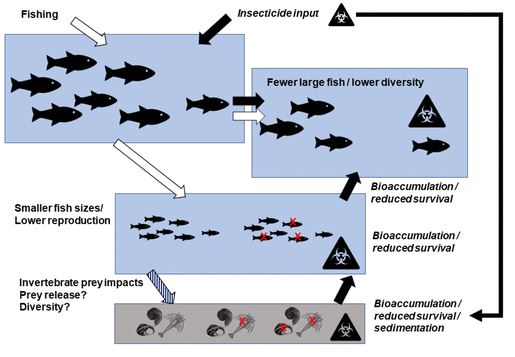
RYAN – Implications of Insecticide-Treated Mosquito Net Fishing in Lower Income Countries
David A. Larsen, Joseph Makaure, Sadie J. Ryan, Donald Stewart, Adrianne Traub, Rick Welsh, Deirdre H. Love, and Joseph H. Bisesi Jr
Article first published online: 8 JAN 2021 Environmental Health Perspectives
DOI: 10.1289/EHP7001
ABSTRACT:
Introduction:
Insecticide-treated mosquito nets (ITNs) are highly effective for the control of malaria. Yet widely distributed ITNs have been repurposed as fishing nets throughout the world.
Objectives:
Herein we present a synthesis of the current knowledge of ITN fishing and the toxicity of pyrethroids and discuss the potential implications of widespread fishing with ITNs. We further review effective management strategies in tropical fisheries to explore a framework for managing potential ITN fishing impacts.
Discussion:
Pyrethroids are toxic to fish and aquatic environments, and fishing with ITNs may endanger the health of fisheries. Furthermore, although human toxicity to the pyrethroid insecticides that impregnate ITNs is traditionally thought to be low, recent scientific advances have shown that pyrethroid exposure is associated with a host of human health issues, including neurocognitive developmental disorders, diabetes, and cardiovascular disease. Although it is known that ITN fishing is widespread, the implications for both fisheries and human communities is understudied and may be severe.
Read the full publication at Environmental Health Perspectives